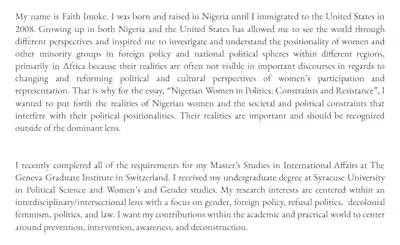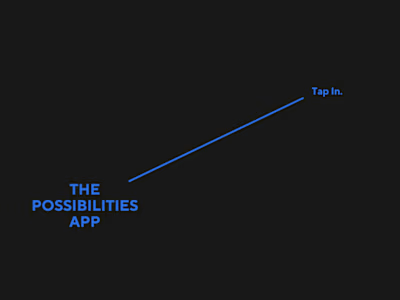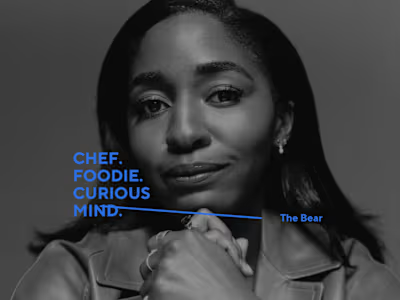Research-Based Writing
Excerpts from pieces I wrote while completing my master’s degree
From “Flo understands. Do you?” an examination of the Flo Period Tracker app through the lens of data colonialism. Written in Fall of 2022.
The user experience of the Flo seeks to drive the user to provide more information about themselves and their habits. In addition to logging the simple information about their periods, they are encouraged to include information about their mood, sexual activity, weight, water intake, and more. Critically, all these simple pieces of information about their daily habits can be used for other purposes. In recording this activity, the Flo company gains information which is quantified. This quantified information can be used to draw insights which are useful not only to the company which will use these insights to improve their user experience but also to third parties. When we understand this we can see that Flo has the opportunity to benefit from the user three times. First, their insights improve. Second, they create a valuable set of data and insights for third parties. And finally, they receive payment from premium users.
In contrast, users do not gain very much from their interaction with the Flo app. Yes, they can predict when their next period will fall and when they may ovulate. If one is familiar with their period, however, they have little to nothing to gain from this app. These very basic insights can be replicated if one uses a detailed calendar to track their menstrual cycle. Thatcher explains this process best: “In exchange for this quantification of the everyday, individuals are offered notional advantages—pleasurable experiences in which aspects of their lives are algorithmically sorted and produced for them based on their quantified markers” (2016, p. 999). Their information is quantified in a way that is useful to Flo but is only superficially beneficial to them.
From “Feminist Pornography: A question”. Written in Spring 2022.
This idea is closely linked to Laura Mulvey’s discussion, “Visual Pleasure and Narrative Cinema”. In this piece, Mulvey shows that the sexism pornography is described to have is not unique to the medium. She notes that women in mainstream film are in fact positioned as erotic objects for two audiences: for the spectator — in line with the dynamic described by Berger — and for the characters within the screen story. In her argument, we see again that women in film are styled in accordance with, “The determining male gaze [which] projects its fantasy of the female figure” (Mulvey, 2003, p. 47). Within mainstream film women are defined as erotic spectacle and have little, if any, personhood; they do not have the ability to command the story the way their counterparts do. Mulvey even goes as far as to claim, “mainstream film neatly combines spectacle and narrative” (2003, p.48). This is the same concept of spectacle she previously describes as solely erotic.
Mulvey briefly mentions the concept of fragmentation in which the camera focuses only on a portion of one’s being. She does not explicitly name this practice as dehumanising but it is not mentioned positively either. bell hooks makes mention of this topic while discussing representations of the Black male body. She does identify this practice as dehumanising. Important here is that neither of these examples come from pornography. Mulvey’s focus is narrative cinema and in that piece, hooks focuses on the images in advertisements. This practice is not exclusive to pornography.
Rubin’s piece make a strong argument for the decriminalisation and destigmatisation of pornography and while it wasn’t the focus of her piece she argues that there is a possibility of feminist pornography. The solution she suggests is the involvement of more women in the pornography industry. She even highlights the development of porn by lesbians for lesbians as a step forward. I do not believe this is the solution Rubin makes it out to be and, in fact, scholars of visual studies would argue this is probably not the solution either. Whether sexually explicit or not, the pornography that Rubin is discussing is a form of visual media. Within this world, it recognised that one’s social location based on group identification is not the issue. In other words, the sexism of pornography does not lie with the fact that pornography producers are men and therefore the solution cannot be having more women as producers of pornography.
In Mulvey’s essay she also points to hope for less sexist forms of cinema within avant-garde cinema which can deviate from the mainstream both politically and aesthetically (2003, p. 45). These films, however, can only be a counterpoint because mainstream film is dominant. hooks also agrees that it is not easy to deviate from the norms within image production, and she notes, “More important than the race, gender, class, or sexual practice of the image-maker is the perspective, the location from which we look and the political choices that inform what we hope those images will be and do”(hooks, 1995, p.212). This means that group identification, i.e. being a woman creating pornography, would not be enough to combat the hegemonic sexism within the medium. The solution brought forward by Rubin would, in fact, not be enough to develop a feminist pornography.
From “Debt Dreams: The turmoils of faith and financial inclusion for Black women in the United States”. Written in Fall of 2022.
Similarly, American futures separate from war seem to ask citizens to place their faith in what debt will bring. Like war, education is framed as an investment in the future. In the narratives presented in Freedom Dreams, Black women describe their debt through narratives of future and faith. Importantly, when these women took on debt they believed they were paving their way to a brighter future: a future with a higher income, a future where they own homes, a future akin to the American dream. They took out debt with faith that at the end of their education, they would be successful. They were then met with an unfortunate reality which is especially harsh for Black women in the United States: most jobs will not pay you enough to be clear of debt in a short amount of time. Additionally, having a higher-level degree does not guarantee better pay if you are a Black woman. The median salary for Black women with Bachelor's degree or higher is $60,681 per year; this can be compared to $91,805 per year for White men, and $67,289 for all women (Williams, 2022). Black women only see an improvement in salary of about $20,000 with this degree of higher education while White men see an improvement of $30,000 (Williams, 2022). And finally, your debt will follow you. Graeber describes debt further as something that allows empowerment but only to an extent, “…if [one ends] up too empowered, we can have them arrested. Debt, power, sin and redemption, become almost indistinguishable. Freedom is slavery. Slavery is freedom” (2011, p. 380). Black women student borrowers are in this exact situation. When they finish their education, they describe themselves as “saddled” with debt, filled with regret, and wracked by shame. Their testimonials almost read like a loss of faith in the promise of debt.
I was sold a myth by society that once I got my PhD I would be able to have upward mobility. That the access to generational wealth would open for me -Dr. Shamell Bell
“Upward mobility.” “It’s a lie.” “That’s a lie!” -Dr. Shamell Bell and Dr. Richelle Brooks
These feelings of entrapment highlight how debt can be used to govern citizens. Now that these women have significant debt, they find themselves unable to act on other components of the American dream. One woman describes that if all her loans were forgiven today, she would buy a house. Another notes that being student debt free would allow her to, “…live [her] authentic life” (Taylor & Stoll, 2022). Critically, we see that this debt blocks Black women from the life and decisions they want to make. Incurring student debt seems to have disciplined these women.
Note: These pieces were inspired by my own frustrations and negative affect. Unfortunately, research-oriented writing within my current space does not encourage the use of affective language or meditation on one’s own experience at length. In future, I would love to expand these works with further research and with engagement with my own experience.
Like this project
Posted Aug 4, 2023
Excerpts from pieces I wrote while completing my master’s degree.
Likes
0
Views
4







